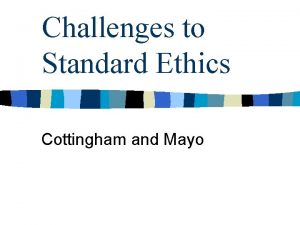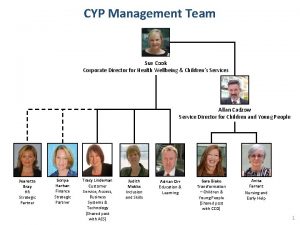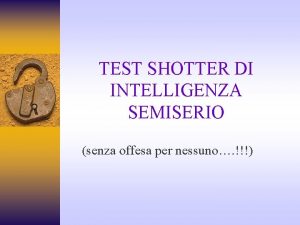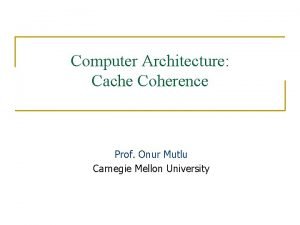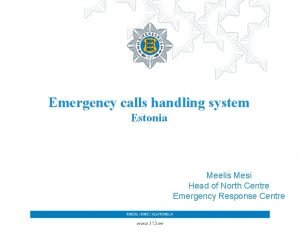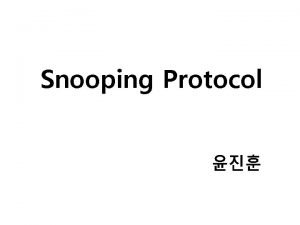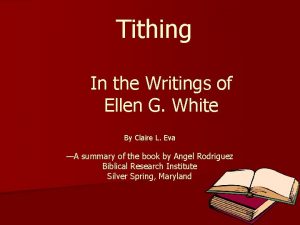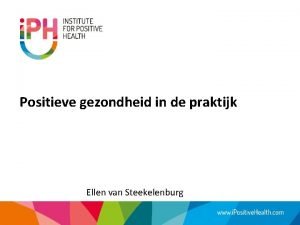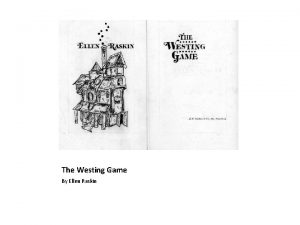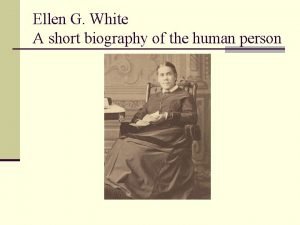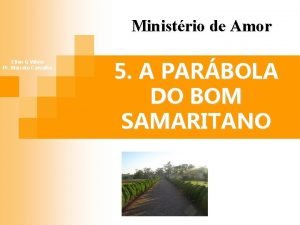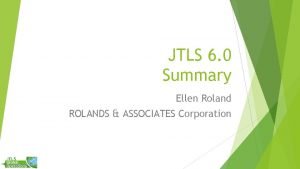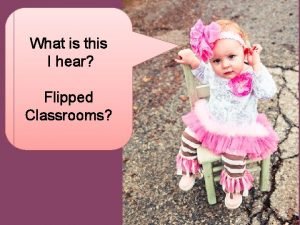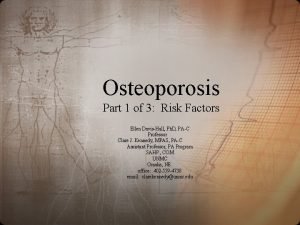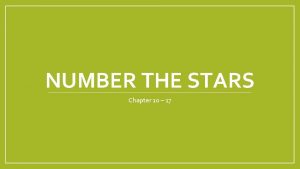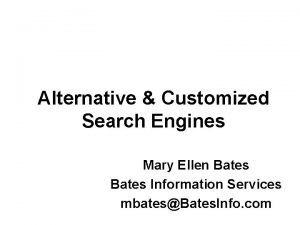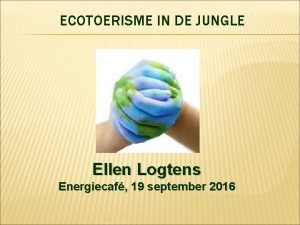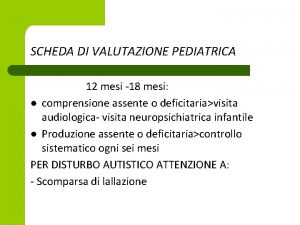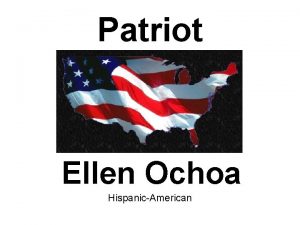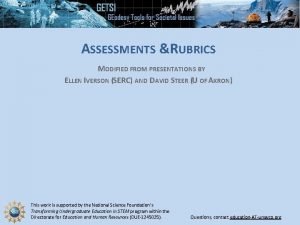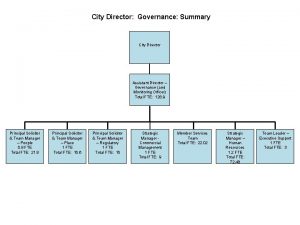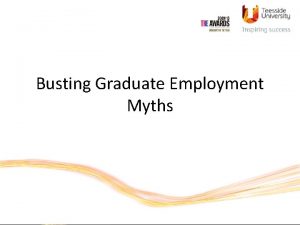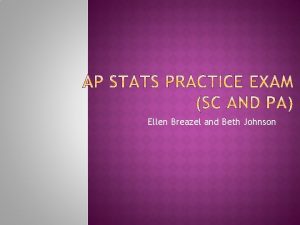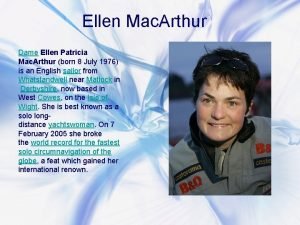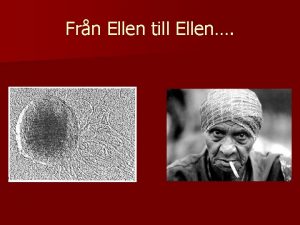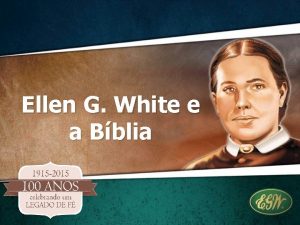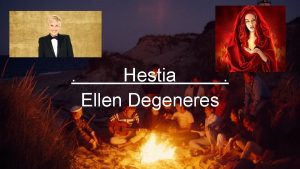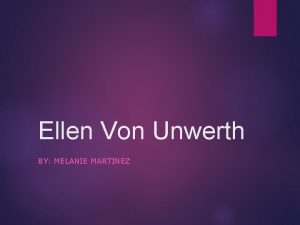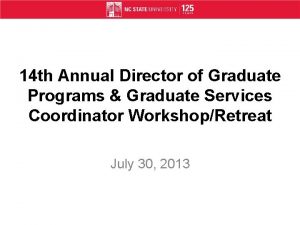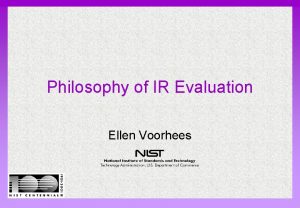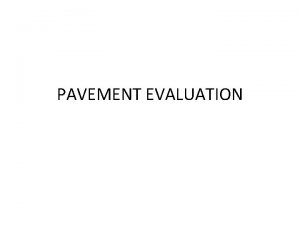Ellen Iverson MESI Graduate Assistant Director of Evaluation




















- Slides: 20

* Ellen Iverson, MESI Graduate Assistant Director of Evaluation at the Science Education Resource Center (SERC) at Carleton College Logic Models for Smarties - MESI 2014 - Ellen Iverson 1

Logic Model Theory of Change Theory of Action Program Theory * Logic Models for Smarties - MESI 2014 - Ellen Iverson 2 Funnell and Rogers, 2011, W. K. Kellogg Foundation’s Logic Model Development Guide

Logic Model Theory of Change Theory of Action Program Theory How a given program, project, strategy, or policy is understood to influence or contribute to specific outcomes * Logic Models for Smarties - MESI 2014 - Ellen Iverson 3 Funnell and Rogers, 2011, W. K. Kellogg Foundation’s Logic Model Development Guide

Logic Model A systematic and visual way to show relationships among the resources of a program, project, strategy, or policy as well as the activities and the intended results Theory of Change Theory of Action Program Theory * Logic Models for Smarties - MESI 2014 - Ellen Iverson 4 Funnell and Rogers, 2011, W. K. Kellogg Foundation’s Logic Model Development Guide

http: //serc. carleton. edu/cismi/2011_hhmi_prop. html * Logic Models for Smarties - MESI 2014 - Ellen Iverson 5 Funnell and Rogers, 2011, W. K. Kellogg Foundation’s Logic Model Development Guide

http: //serc. carleton. edu/isme/workshop 2012/framework. html * Logic Models for Smarties - MESI 2014 - Ellen Iverson 6 Funnell and Rogers, 2011, W. K. Kellogg Foundation’s Logic Model Development Guide

Logic Model Theory of Change How change comes about and what are the central processes/drivers for change in a given program, project, strategy, or policy Theory of Action Program Theory * Logic Models for Smarties - MESI 2014 - Ellen Iverson 7 Funnell and Rogers, 2011, W. K. Kellogg Foundation’s Logic Model Development Guide

Logic Models for Smarties - MESI 2014 - Ellen Iverson 8

Logic Models for Smarties - MESI 2014 - Ellen Iverson 9

Logic Model Theory of Change Theory of Action What the program, project, strategy, or policy does (activities and level of success needed) to influence or contribute to outcomes Program Theory * Logic Models for Smarties - MESI 2014 - Ellen Iverson 10 Funnell and Rogers, 2011, W. K. Kellogg Foundation’s Logic Model Development Guide

*Plan program or strategies *Define scope *Visualize complexity to anticipate uncertainties *Facilitate a shared understanding *Engage stakeholders *Document perceptions *Disseminate more broadly *Identify evaluation opportunities and monitor progress * Logic Models for Smarties - MESI 2014 - Ellen Iverson 11

Logic Model Theory of Change Theory of Action Program Theory How a given program, project, strategy, or policy is understood to influence or contribute to specific outcomes * Logic Models for Smarties - MESI 2014 - Ellen Iverson 12

*Articulate “mental models” of key stakeholders *Analyze via artifacts (documents, reports, forms) *Infer through observation of program including interviewing staff and participants * Logic Models for Smarties - MESI 2014 - Ellen Iverson Funnell and Rogers, 2011 13

*Visioning * Describe how you now serve clients? * What specific improvements have been made? * What are people saying about the program now? * What problems have been solved? * What specific outcomes have been achieved? * How are people behaving differently? * Logic Models for Smarties - MESI 2014 - Ellen Iverson 14 Bens, I. (2012). Facilitating with ease! Jossey-Bass: San Francisco

*Visioning *Write individual responses *Compare with partner *Compare with another partner *Facilitate discussion * Logic Models for Smarties - MESI 2014 - Ellen Iverson 15 Bens, I. (2012). Facilitating with ease! Jossey-Bass: San Francisco

*Focus Group (Bens, page 22) *Reflective listening *Getting the right people to the table (even if “virtually”) *Iterate *Return and revise *Disseminate * Logic Models for Smarties - MESI 2014 - Ellen Iverson 16 Bens, I. (2012). Facilitating with ease! Jossey-Bass: San Francisco

*Snow Cards (Keystone, page 15) *Brainstorm Pre-Conditions *What change? *For whom? *How good? *By when * Logic Models for Smarties - MESI 2014 - Ellen Iverson 17 Bens, I. (2012). Facilitating with ease! Jossey-Bass: San Francisco

*What would a simple logic model look like? *What might a theory of change look like? *What might the models miss? *What outside forces might influence the program? *What might be some unexpected outcomes (positive/negative) *What questions would you have about the program and program theory? * Logic Models for Smarties - MESI 2014 - Ellen Iverson 18

Logic Models for Smarties - MESI 2014 - Ellen Iverson 19 Funnell and Rogers, 2011, W. K. Kellogg Foundation’s Logic Model Development Guide

* W. K. Kellogg Foundation’s Logic Model Development Guide http: //www. wkkf. org/resource-directory/resource/2006/02/wk-kelloggfoundation-logic-model-development-guide Funnell, S. C. & Rogers, P. J. (2011). Purposeful program theory: Effective use of theories of change and logic models. San Francisco, CA: Jossey. Bass. Keystone. (2009). Developing a Theory of Change from http: //www. keystoneaccountability. org/sites/default/files/2%20 Developi ng%20 a%20 theory%20 of%20 change. pdf Mc. Laughlin, John A. , & Jordan, Gretchen B. (1999). Logic models: A tool for telling your program’s performance story. Evaluation and Program Planning, 22(1), 65 -72. Milstein, Bobby, & Chapel, Tom. (N. D. ). Developing a Logic Model or Theory of Change. The Community Toolbox. Retrieved 12 March 2014, from http: //ctb. ku. edu/en/tablecontents/sub_section_main_1877. aspx * Logic Models for Smarties - MESI 2014 - Ellen Iverson 20
 Sherrice iverson
Sherrice iverson Assistant director vicky
Assistant director vicky Cyp assistant director
Cyp assistant director Quanti mesi hanno 28 giorni
Quanti mesi hanno 28 giorni Mesi cache
Mesi cache Premenopausa sintomi ciclo
Premenopausa sintomi ciclo Meelis mesi
Meelis mesi Mesi protocol
Mesi protocol Mesi state transition diagram
Mesi state transition diagram Ellen white tithe
Ellen white tithe Ellen van steekelenburg
Ellen van steekelenburg Westing game author
Westing game author Ellen g white biography
Ellen g white biography Ellen white amor ao próximo
Ellen white amor ao próximo Ellen roland
Ellen roland Ellen turnell
Ellen turnell Unmc omaha
Unmc omaha Number the stars chapter 10
Number the stars chapter 10 Mit tehetünk az ózonlyuk ellen
Mit tehetünk az ózonlyuk ellen Mary ellen bates
Mary ellen bates Ellen logtens
Ellen logtens
